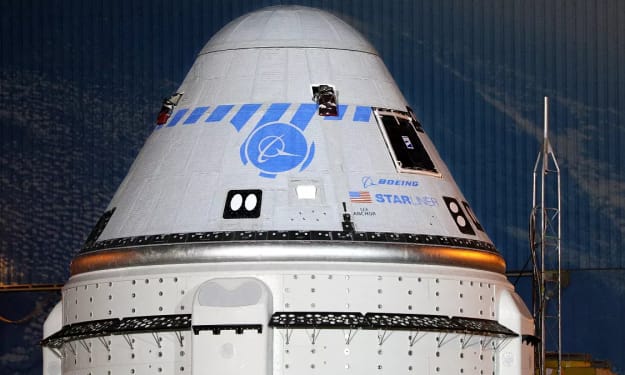Artificial Intelligence (AI) is poised to impact the labor market
Ai will hit the labor market like a tsunami

Artificial Intelligence (AI) is poised to impact the labor market in profound and potentially disruptive ways, akin to a tsunami. This analogy captures both the immense scale and the rapid, transformative force with which AI technologies are expected to reshape industries, employment, and the very nature of work.
The Nature of the Tsunami
A tsunami's defining characteristics include sudden onset, overwhelming power, and widespread impact. Similarly, AI is set to revolutionize the labor market with unprecedented speed and intensity. The advent of advanced AI systems, from machine learning algorithms to robotics, is accelerating at a breakneck pace. These technologies are not just enhancing existing processes but are fundamentally altering them, creating new paradigms in productivity, efficiency, and capability.
Displacement and Job Transformation
One of the most immediate effects of AI will be job displacement. Automation is capable of performing repetitive and routine tasks with greater efficiency and accuracy than humans. Jobs in manufacturing, data entry, customer service, and even some areas of healthcare are vulnerable. For instance, self-checkout systems in retail, automated diagnostic tools in healthcare, and robotic assembly lines in manufacturing are all examples where AI is already making human labor redundant.
However, the impact goes beyond mere displacement. AI is also transforming jobs that remain. Roles are evolving to require new skill sets, blending traditional functions with new technological proficiencies. Workers will need to adapt, acquiring skills in data analysis, AI oversight, and interdisciplinary collaboration to remain relevant. For example, a maintenance technician may now need to understand and manage robotic systems, or a marketer may need to utilize AI-driven analytics to craft strategies.
Economic and Social Implications
The economic implications of AI's integration into the labor market are multifaceted. On one hand, AI has the potential to significantly boost productivity and economic growth. By automating routine tasks, businesses can reduce costs and increase output, potentially leading to lower prices and innovations.
On the other hand, the disruption to the labor market could exacerbate existing inequalities. Workers displaced by AI may find it difficult to transition to new roles without adequate retraining and education. This could lead to a significant portion of the workforce facing unemployment or underemployment. Additionally, the benefits of increased productivity may not be evenly distributed, with higher profits accruing to business owners and investors rather than workers, thereby widening the income gap.
The Need for Policy and Education Reform
To mitigate the disruptive effects of AI on the labor market, proactive measures are essential. Governments, educational institutions, and businesses must collaborate to develop comprehensive strategies that address the challenges posed by AI.
Education systems need to be overhauled to focus on skills that will be in demand in an AI-driven economy. Emphasis on STEM (Science, Technology, Engineering, and Mathematics) education is crucial, but so is fostering creativity, critical thinking, and emotional intelligence—areas where humans have an edge over machines. Lifelong learning and continuous skill development should become the norm, supported by policies that provide access to training and reskilling programs.
Labor policies must also adapt to ensure a fair transition. This includes strengthening social safety nets, such as unemployment benefits and healthcare, to support workers displaced by AI. Furthermore, policies that promote job creation in emerging sectors, such as renewable energy, healthcare, and technology, can provide new opportunities for displaced workers.
Embracing the Tsunami
While the AI-driven transformation of the labor market presents significant challenges, it also offers opportunities for creating a more efficient, innovative, and prosperous society. By proactively addressing the potential disruptions and equipping the workforce with the necessary skills, we can harness the power of AI to enhance human capabilities rather than replace them.
In conclusion, AI will indeed hit the labor market like a tsunami, bringing both waves of disruption and opportunities for renewal. The key to navigating this change lies in our ability to adapt, innovate, and ensure that the benefits of AI are broadly shared across society. The tsunami analogy underscores the urgency and scale of the change, reminding us that preparation and resilience are crucial in facing the future of work shaped by AI.
The Scope of AI's Impact
AI's impact on the labor market is not confined to a single sector; it spans across various industries, each experiencing unique transformations. For instance, in finance, AI algorithms are revolutionizing trading, risk assessment, and customer service. In healthcare, AI-driven diagnostic tools, robotic surgery, and personalized medicine are redefining patient care. Transportation is on the cusp of a revolution with autonomous vehicles. These changes illustrate how pervasive and transformative AI's influence will be across different sectors.
The Human Element: Adaptation and Resilience
As AI continues to advance, the human element of adaptation and resilience becomes crucial. The labor force must be agile, ready to learn and adapt to new tools and processes. This shift requires a cultural change in how we approach work and education. Encouraging a growth mindset, where continuous learning and adaptability are valued, will be essential.
Moreover, emotional intelligence, creativity, and interpersonal skills will become increasingly important. While AI can process data and perform tasks with precision, it lacks the human touch needed in roles that require empathy, negotiation, and complex problem-solving. Jobs in counseling, creative arts, and leadership will still rely heavily on these human attributes, underscoring the need for a balanced skill set that leverages both technical and soft skills.
The Role of Businesses
Businesses play a pivotal role in this transition. They must not only adopt AI technologies but also invest in their workforce. This involves providing ongoing training and development opportunities to help employees adapt to new roles. Companies that prioritize employee growth and flexibility will be better positioned to thrive in an AI-driven market.
Additionally, ethical considerations in AI deployment are crucial. Businesses must ensure that AI systems are used responsibly, with transparency and accountability. This includes addressing biases in AI algorithms, protecting data privacy, and ensuring that AI decisions can be explained and justified. By fostering an ethical approach to AI, businesses can build trust and ensure that the technology is used for the greater good.
The Global Perspective
AI's impact on the labor market will vary globally, influenced by factors such as economic development, regulatory environments, and cultural attitudes toward technology. In developed economies, the focus may be on transitioning existing workforces and integrating AI into complex industries. In contrast, developing countries might face different challenges, such as leapfrogging traditional industrialization stages directly to an AI-driven economy.
International cooperation and policy alignment will be crucial. Global standards for AI ethics, data usage, and labor practices can help ensure a level playing field and prevent the exploitation of workers in less regulated markets. Collaborative efforts can also foster innovation and share the benefits of AI more equitably.
Long-term Vision: Redefining Work
The long-term vision for the labor market in an AI-driven world extends beyond immediate disruptions and adaptations. It involves fundamentally redefining work itself. As AI takes over more routine tasks, there will be opportunities to rethink what work means for individuals and society. This could lead to shorter workweeks, more flexible work arrangements, and a greater focus on work-life balance.
Furthermore, the rise of AI could spur the creation of entirely new industries and job categories that we cannot yet fully envision. Historical precedents, such as the Industrial Revolution, show that technological advancements often lead to the emergence of new sectors and opportunities. Similarly, AI has the potential to unlock human creativity and innovation in ways that lead to unforeseen economic and social advancements.
Conclusion: Navigating the AI Tsunami
Navigating the AI tsunami requires a comprehensive and coordinated approach. Education systems must be reformed, businesses need to invest in their workforce, and governments must create supportive policies. At the same time, ethical considerations and international cooperation are essential to ensure that the benefits of AI are widely shared.
By embracing these changes proactively, society can turn the potential disruption of AI into an opportunity for growth and renewal. The AI-driven future of work holds promise, but realizing this potential depends on our ability to adapt, innovate, and prioritize human well-being alongside technological advancement. As we prepare for the impact of this technological tsunami, the goal should be to build a resilient and inclusive labor market that harnesses AI's power for the benefit of all.
About the Creator
Reader insights
Nice work
Very well written. Keep up the good work!
Top insights
Eye opening
Niche topic & fresh perspectives
Heartfelt and relatable
The story invoked strong personal emotions
On-point and relevant
Writing reflected the title & theme





Comments (7)
Good job dear. We get prepared
Wonderful So we need to get ready for Ai takeover
great job good explaining
Wow nice
Great Insite to tomorrow
This is an eye opener to everyone. We have to hustle for jobs with ai.
I think some jobs should be set aside purely for human.